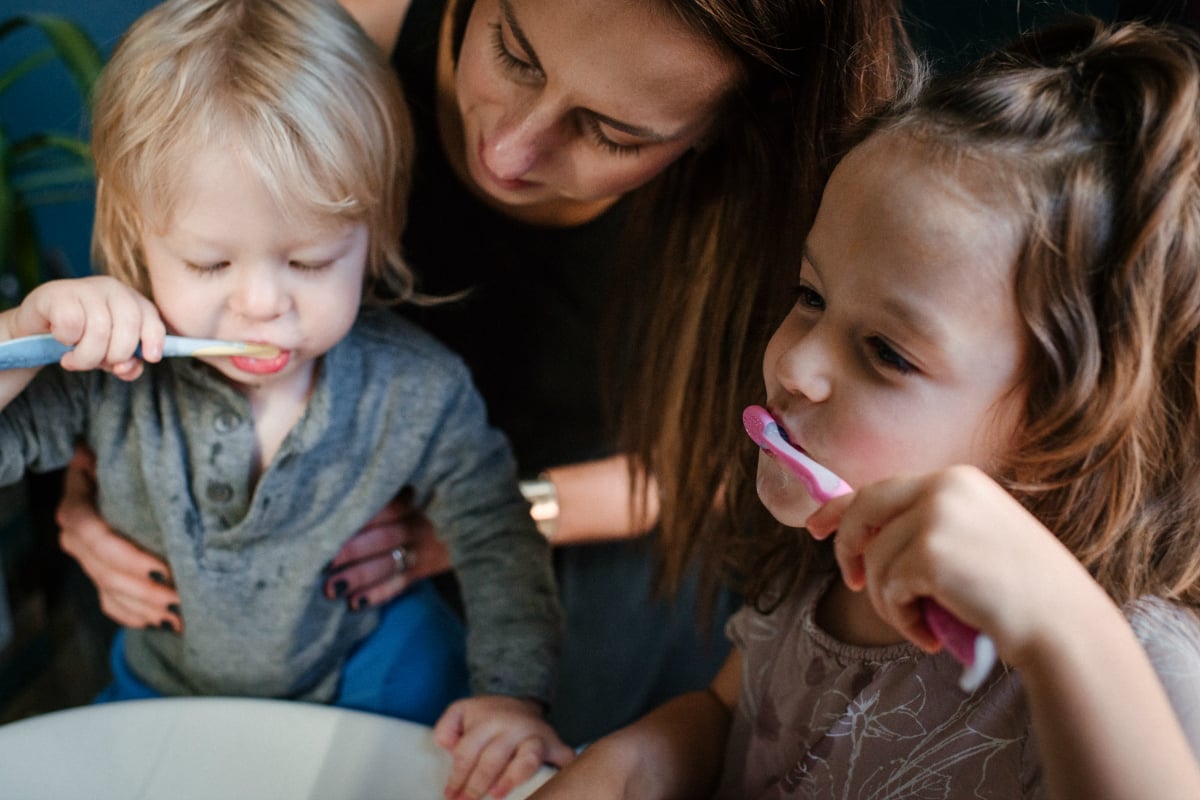
Many parents will be familiar with the challenges of getting young children to brush their teeth.
There are songs, rhymes and bribes to help ensure basic oral hygiene happens, but all too often, when it’s bedtime or during the morning rush, parents simply don’t have the time or energy to put into the battle.
“It’s just baby teeth, they’ll fall out,” some parents think to themselves, to allay their fears.
But the bad news is, baby teeth matter a lot more than we may realise.
Mamamia spoke to Dr Mihiri Silva, a paediatric dentist (and a mother who understands the struggle), from the Murdoch Children’s Research Institute, to discover exactly why.
What do you say to parents who think oral care for baby teeth doesn’t matter?
“We know for a number of reasons that oral care for first teeth is really important,” Dr Silva said.
“This is partly because our habits are something we develop from an early age, and so parents need to help their kids understand the value of their teeth.
“I know it’s hard at the start, but it will make a sound routine so much easier to implement later.”
Dr Silva added that caring for baby teeth is important to help prevent decay.
“Dental decay is still a big problem for Australian kids. Over a third have tooth decay by the time they start school,” she said.
“Statistics for hospital admissions show dental issues are one of the most common reasons for preventable acute hospitalisation.
“Hospitalisation is required when decay is so severe that the amount of dental of treatment is too much for a child to bear, so it needs to be performed under a general anaesthetic.
“The other reason for hospitalisation occurs when there’s a serious infection that’s caused by tooth decay, resulting in systemic illness that needs to be treated by IV antibiotics.

Top Comments
'“Dental decay is still a big problem for Australian kids. Over a third have tooth decay by the time they start school,” she said.'
BUT, WE HAVE BEEN TOLD OVER AND OVER:
"Adding fluoride to tap water to prevent tooth decay is one of our greatest public health achievements,"
How many people still drink tap water and not sugar drinks?
Imagine if there isn't any fluoride, instead of a third, it could've been 1/2 or 2/3. We can only speculate.
No need to speculate:
The NHMRC review found children and teenagers who had lived in areas with water fluoridation had 26-44% fewer teeth or surfaces affected by decay, and adults had 27% less tooth decay.
Many think that the fluoride in water is enough.
Its not.
We all need to brush AND floss AND drink water with fluoride.
My son was difficult to brush, then one night refused. One hour of making him stay in the bathroom crying and refusing to brush vs calmly and consistently stating brushing is not negotiable and no bed until its done wore him down. After that there have been no problems.